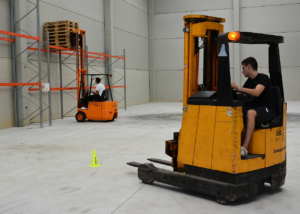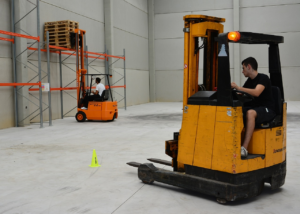Are you considering a career in nursing in South Dakota? The nursing industry in this state is thriving, and there are many opportunities available for those who are passionate about healthcare.
It’s important to understand the average nursing salaries in South Dakota, as well as the educational and experience requirements that can affect your earning potential.
In this article, you’ll learn about the nursing industry in South Dakota and the average salaries for different types of nursing positions. You’ll also discover how your educational background and years of experience can impact your earning potential, as well as how your geographic location within the state can affect your salary.
With this information, you’ll be better prepared to explore the benefits and opportunities available in the South Dakota nursing industry.
Key Takeaways
- Nursing industry in South Dakota is thriving with many job opportunities available and a significant need for healthcare professionals, especially nurses.
- Pursuing further education can lead to increased job opportunities, more comprehensive benefits packages, and higher salaries.
- BSN-prepared nurses earn more than those with an ADN due to broader understanding of healthcare and better critical thinking and leadership skills.
- Experienced nurses can expect a significant increase in salary compared to entry-level positions and many healthcare organizations in the state offer generous benefits packages.
Overview of the Nursing Industry in South Dakota
So, you’re wondering about the nursing industry in South Dakota? Well, let me tell you, it’s a field that’s constantly growing and evolving.
With a population of over 885,000 people, South Dakota has a significant need for healthcare professionals, especially nurses. The job opportunities for nurses in South Dakota are plentiful, with hospitals, clinics, nursing homes, and other healthcare facilities always in need of skilled nurses.
The job outlook for nurses in South Dakota is promising, with the Bureau of Labor Statistics projecting a 12.4% increase in nursing jobs from 2016 to 2026. This growth rate is higher than the national average, making South Dakota an excellent place to start or continue a nursing career.
Additionally, South Dakota’s nursing salaries are competitive, with an average hourly wage of $29.54, according to the BLS. Overall, the nursing industry in South Dakota is a thriving field that offers excellent job opportunities and a promising career outlook.
Average Nursing Salaries in South Dakota
The average pay for nurses in South Dakota is quite competitive compared to other regions. As of May 2020, the mean annual wage for registered nurses in the state was $59,540, according to the Bureau of Labor Statistics.
The salary can vary depending on the nursing specialty, with nurse anesthetists, nurse practitioners, and nurse midwives earning higher salaries than the average RN.
Salary trends in the nursing industry in South Dakota are promising. The state’s healthcare industry is growing, and there’s a high demand for qualified and skilled nurses. This means that nursing salaries are likely to increase as employers compete for talent.
Additionally, nurses with advanced degrees and certifications can earn even higher salaries, making it a lucrative career path for those willing to invest in their education and training.
Educational Requirements and Nursing Salaries
If you’re considering a nursing career in South Dakota, it’s important to understand how your level of education could affect your earning potential.
Generally speaking, nurses with more advanced degrees tend to earn higher salaries than those with only a basic education.
Additionally, pursuing further education can also lead to increased job opportunities and more comprehensive benefits packages.
Differences in Salaries Based on Education
Earning a higher degree can lead to increased earning potential for nursing professionals in South Dakota. Education level impacts the salaries of nurses in the state, with those who have obtained a Bachelor of Science in Nursing (BSN) degree earning more than their counterparts with an Associate Degree in Nursing (ADN). This is because BSN-prepared nurses have a broader understanding of healthcare, as well as better critical thinking and leadership skills, which make them more valuable to employers.
Furthermore, obtaining an advanced degree such as a Master of Science in Nursing (MSN) or a Doctor of Nursing Practice (DNP) can provide career growth opportunities and higher salaries. With an MSN, nurses can become nurse practitioners, nurse educators, or clinical nurse specialists, among other roles. These advanced positions come with higher salaries and more responsibility.
Pursuing a DNP can lead to even more opportunities, such as becoming a nurse executive or a nurse researcher. Overall, investing in higher education can pay off in the form of higher salaries and increased career options for nursing professionals in South Dakota.
Benefits of Advanced Education
Investing in advanced education can open up a world of career opportunities and higher salaries for nurses. By pursuing advanced degrees such as a Master’s or Doctorate in Nursing, nurses can specialize in a particular field of healthcare and become leaders in their profession.
Here are some benefits of advanced education that can help you achieve career advancement and job satisfaction:
-
Greater knowledge and skills: Advanced education provides nurses with a deeper understanding of healthcare, which can help them provide better care to patients. This can lead to higher job satisfaction and a sense of fulfillment.
-
Leadership opportunities: Nurses who pursue advanced education can become leaders in their field, such as nurse managers, administrators, or educators. This can lead to greater career advancement and higher salaries.
-
Specialization in a particular field: Advanced education allows nurses to specialize in a particular area of healthcare, such as pediatrics, oncology, or critical care. This can lead to more job opportunities and higher salaries.
-
Networking opportunities: Pursuing advanced education can provide nurses with opportunities to network with other professionals in their field, which can lead to new job opportunities or collaborations.
-
Personal growth: Pursuing advanced education can be a personally rewarding experience that can lead to personal growth and development. This can lead to greater job satisfaction and a sense of achievement.
Overall, investing in advanced education can provide nurses with a range of benefits that can help them achieve career advancement and job satisfaction. Whether you’re looking to specialize in a particular area of healthcare or become a leader in your profession, pursuing advanced education can help you achieve your goals.
Experience and Nursing Salaries
As an experienced nurse in South Dakota, you can expect to see a significant increase in your salary compared to entry-level positions. With career growth and job satisfaction, you can look forward to earning a higher salary as you gain more experience.
The average salary for a registered nurse with 10-19 years of experience in South Dakota is around $65,000 per year. Your experience in the field can also open up opportunities for leadership positions, such as charge nurse or nurse manager, which typically come with higher salaries.
In addition, some healthcare facilities offer bonuses or other incentives for experienced nurses who take on more responsibility. Overall, your experience as a nurse in South Dakota can greatly impact your earning potential and provide a fulfilling career path.
Geographic Location and Nursing Salaries
If you’re looking to maximize your income potential as a nurse, where you choose to work geographically can have a significant impact. Regional variances play a big role in determining nursing salaries in South Dakota.
For instance, nurses working in metropolitan areas like Sioux Falls or Rapid City tend to earn higher salaries than those working in more rural areas. This is because hospitals in larger cities tend to have higher patient volumes, which means that nurses are in higher demand and are therefore paid a higher salary.
Another factor that comes into play when looking at geographic location and nursing salaries is the cost of living. While nurses working in metropolitan areas may earn higher salaries, the cost of living in these areas is also typically higher. This means that even with a higher salary, nurses may struggle to make ends meet due to the increased cost of housing, transportation, and other expenses.
On the other hand, nurses working in more rural areas may earn a lower salary, but the cost of living is also lower, which can help stretch their earnings further.
Ultimately, it’s important to consider both regional variances and the cost of living when deciding where to work as a nurse in South Dakota.
Benefits and Opportunities in the South Dakota Nursing Industry
Working as a nurse in the Mount Rushmore State can open up a world of opportunities for career advancement and job benefits.
With a growing demand for healthcare professionals in South Dakota, nurses can expect to find ample opportunities for growth and advancement in their careers.
Additionally, many healthcare organizations in the state offer generous benefits packages, including retirement plans, health insurance, and paid time off, which can contribute to job satisfaction and retention.
South Dakota is home to a diverse range of healthcare facilities, from large hospitals to small clinics, which offer nurses the chance to work in a variety of settings and specialties.
Whether you prefer working with children, adults, or the elderly, there are opportunities available in South Dakota to match your interests and skills.
Furthermore, the state’s nursing organizations provide many opportunities for continuing education and professional development, allowing nurses to stay up-to-date with the latest trends and technologies in their field.
Overall, working as a nurse in South Dakota can provide you with a fulfilling and rewarding career, with plenty of opportunities for growth and advancement.
Conclusion
Congratulations! You’ve just learned about the nursing industry in South Dakota and the average salaries you can expect.
Now, it’s time to put this knowledge into action and pursue your dream of becoming a nurse.
Remember, your educational background and experience will play a significant role in determining your salary. So, invest in your education and gain as much experience as you can.
Additionally, remember that your geographic location can also impact your salary. So, if you’re looking for higher-paying opportunities, consider working in a larger city.
Overall, the nursing industry in South Dakota offers many benefits and opportunities for those who are willing to work hard and invest in themselves.
So, take the first step towards your dream career today and start working towards becoming a nurse in South Dakota. Good luck!

































































































